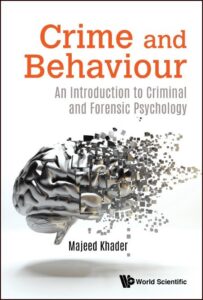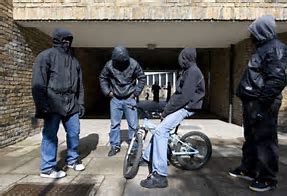Introduction

Forensic psychology is a specialized field that applies psychological principles and methods to understand criminal behavior and contribute to the legal process. Within forensic psychology, several theories seek to explain the causes and motivations behind criminal behavior. Here are some prominent theories:
Psychoanalytic Theory:
Developed by Sigmund Freud, this theory suggests that criminal behavior stems from unconscious conflicts and unresolved issues from childhood. Freud proposed that individuals may engage in criminal acts as a result of unresolved psychological conflicts or trauma, which manifest in maladaptive behaviors.
Social Learning Theory:
Social learning theory, popularized by Albert Bandura, emphasizes the role of observational learning and modeling in shaping behavior. According to this theory, individuals learn criminal behavior through observation of others, particularly significant role models such as parents, peers, or media figures. Reinforcement and punishment also play a crucial role in determining whether observed behaviors are adopted.
Strain Theory:
Developed by Robert Merton, strain theory posits that individuals may turn to crime when they experience a disjunction between socially endorsed goals and the legitimate means to achieve them. When individuals perceive barriers to achieving success through conventional means (e.g., education, employment), they may resort to criminal behavior as an alternative means of achieving their goals.
Control Theory:

Control theory, proposed by Travis Hirschi, suggests that criminal behavior occurs when an individual’s bonds to conventional society are weakened. These bonds include attachment to others, commitment to conventional norms and values, involvement in conventional activities, and belief in the moral validity of societal rules. When these bonds are weakened or absent, individuals are more likely to engage in criminal acts.
Biological Theories:
Biological theories of crime focus on the role of genetic, neurological, and physiological factors in predisposing individuals to criminal behavior. For example, genetic predispositions, such as variations in neurotransmitter functioning or inherited personality traits, may increase susceptibility to criminal conduct. Additionally, abnormalities in brain structure or functioning, as well as hormonal imbalances, have been implicated in some forms of criminal behavior.
Psychopathy and Antisocial Personality Theory:
Psychopathy and antisocial personality theory focuses on individuals who exhibit a pervasive pattern of disregard for and violation of the rights of others. These individuals often lack empathy, exhibit superficial charm, and engage in manipulative and deceitful behaviors. Psychopathy is associated with a higher risk of engaging in criminal behavior, particularly violent and predatory acts.
Routine Activities Theory:
This theory, developed by Lawrence E. Cohen and Marcus Felson, emphasizes the role of everyday routines and opportunities in facilitating or preventing criminal behavior. According to this theory, crime occurs when motivated offenders encounter suitable targets in the absence of capable guardianship. Changes in routine activities, such as increased opportunities for crime due to shifts in work patterns or leisure activities, can influence crime rates.
These theories of crime in forensic psychology provide valuable frameworks for understanding the diverse factors contributing to criminal behavior. Forensic psychologists often draw on these theories to assess and analyze criminal conduct, inform legal decision-making processes, and develop interventions aimed at reducing recidivism and promoting rehabilitation.
Forensic psychology
is a field that merges principles of psychology with the criminal justice system, particularly in areas such as criminal profiling, assessing competency, and understanding the psychological factors underlying criminal behavior. Several theories have been developed within forensic psychology to explain the etiology and dynamics of criminal behavior. Here are some key theories:
Psychodynamic Theory

Rooted in Freudian principles, psychodynamic theory posits that unconscious conflicts and unresolved childhood experiences shape individuals’ personalities and behaviors, including criminal behavior. Psychodynamic approaches to forensic psychology emphasize the role of early childhood experiences, trauma, and personality development in predisposing individuals to criminal conduct.
Social Learning Theory:
Developed by Albert Bandura, social learning theory emphasizes the influence of socialization processes, observational learning, and reinforcement in shaping behavior. Within the context of forensic psychology, social learning theory suggests that individuals learn criminal behavior through exposure to deviant models, reinforcement of antisocial behaviors, and the internalization of criminal scripts and norms within social networks.
Cognitive Theory:
Cognitive theories of crime focus on individuals’ thought processes, decision-making, and cognitive distortions that contribute to criminal behavior. These theories highlight cognitive biases, faulty reasoning, and irrational beliefs that lead individuals to engage in criminal acts. Cognitive-behavioral interventions, based on cognitive theory, are widely used in forensic psychology to address criminal thinking patterns and promote prosocial behavior.
Biological Theory:
Biological theories of crime explore the role of genetics, brain functioning, and neurochemistry in predisposing individuals to criminal behavior. Biological explanations of crime suggest that genetic factors, neurotransmitter imbalances, and abnormalities in brain structure and function can contribute to impulsivity, aggression, and other risk factors associated with criminal conduct.
Psychopathy Theory:
Psychopathy theory focuses on understanding the personality disorder characterized by callousness, manipulativeness, and a lack of empathy. Individuals high in psychopathic traits are more likely to engage in criminal behavior, particularly violent and predatory acts. Psychopathy theory emphasizes the importance of assessing and managing psychopathic traits in forensic contexts, such as risk assessment and treatment planning.
Routine Activity Theory:
Developed by Marcus Felson and Lawrence E. Cohen, routine activity theory suggests that criminal behavior occurs when motivated offenders encounter suitable targets in the absence of capable guardianship. This theory highlights the role of situational factors, such as opportunities for crime and lack of effective crime prevention measures, in facilitating criminal behavior. Routine activity theory has practical implications for crime prevention strategies, emphasizing the importance of target hardening and increasing guardianship to reduce criminal opportunities.
Strain Theory:

Strain theory posits that individuals may turn to crime as a means of coping with the strain caused by societal pressures, such as poverty, inequality, and limited opportunities for success. According to strain theory, the discrepancy between societal goals and the means available to achieve them can lead to feelings of frustration, alienation, and anomie, increasing the likelihood of engaging in criminal behavior as a form of adaptation.
Conclusion
These theories provide valuable frameworks for understanding the diverse factors that contribute to criminal behavior and inform interventions aimed at reducing recidivism, promoting rehabilitation, and enhancing public safety within the criminal justice system. Forensic psychologists draw on these theories to conduct assessments, develop treatment plans, and provide expert testimony in legal proceedings involving criminal behavior.


